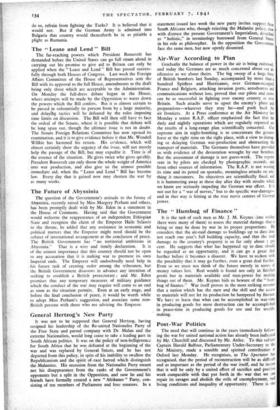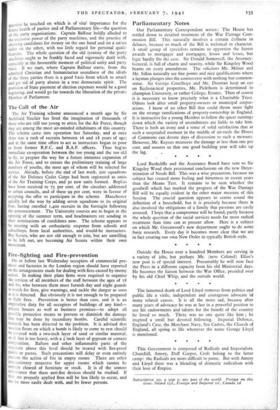Post-War Politics
The need that will continue in the years immediately follow- ing the war for united national action has already been indicated by Mr. Churchill and discussed by Mr. Attlee. To this subject Captain Harold Balfour, Parliamentary Under-Secretary to the Air Ministry, made a sensible and spirited contribution at Oxford last Monday. He recognises, as The Spectator has recognised, that the period of reconstruction will be as difficult and as important as the period of the war itself, and he insists that it will be only by a united effort of sacrifice and positive work comparable with that put forth in the war that we co repair its ravages and abolish the evils of unemployment, bad living conditions and inequality of opportunity. There is one question he touched on which is of vital importance for the future health of parties and of Parliamentary life—the question of the party organisations. Captain Balfour boldly alluded to the excessive power of the party machines, and the practice of choosing candidates for money on the one hand and on a union ticket on the other, with too little regard for personal quali- fications. The whole question of the old tyranny of the party machines ought to be frankly faced and vigorously dealt with, especially at the favourable moment of political unity and party truce. If we start, where Captain Balfour starts, from the admitted Christian and humanitarian soundness of the ideals of the three parties there is a good basis from which to attack and get rid of party abuses in a true democratic spirit. The provision of State payment of election expenses would be a good beginning, and would go far towards the liberation of the private Member of Parliament.































 Previous page
Previous page